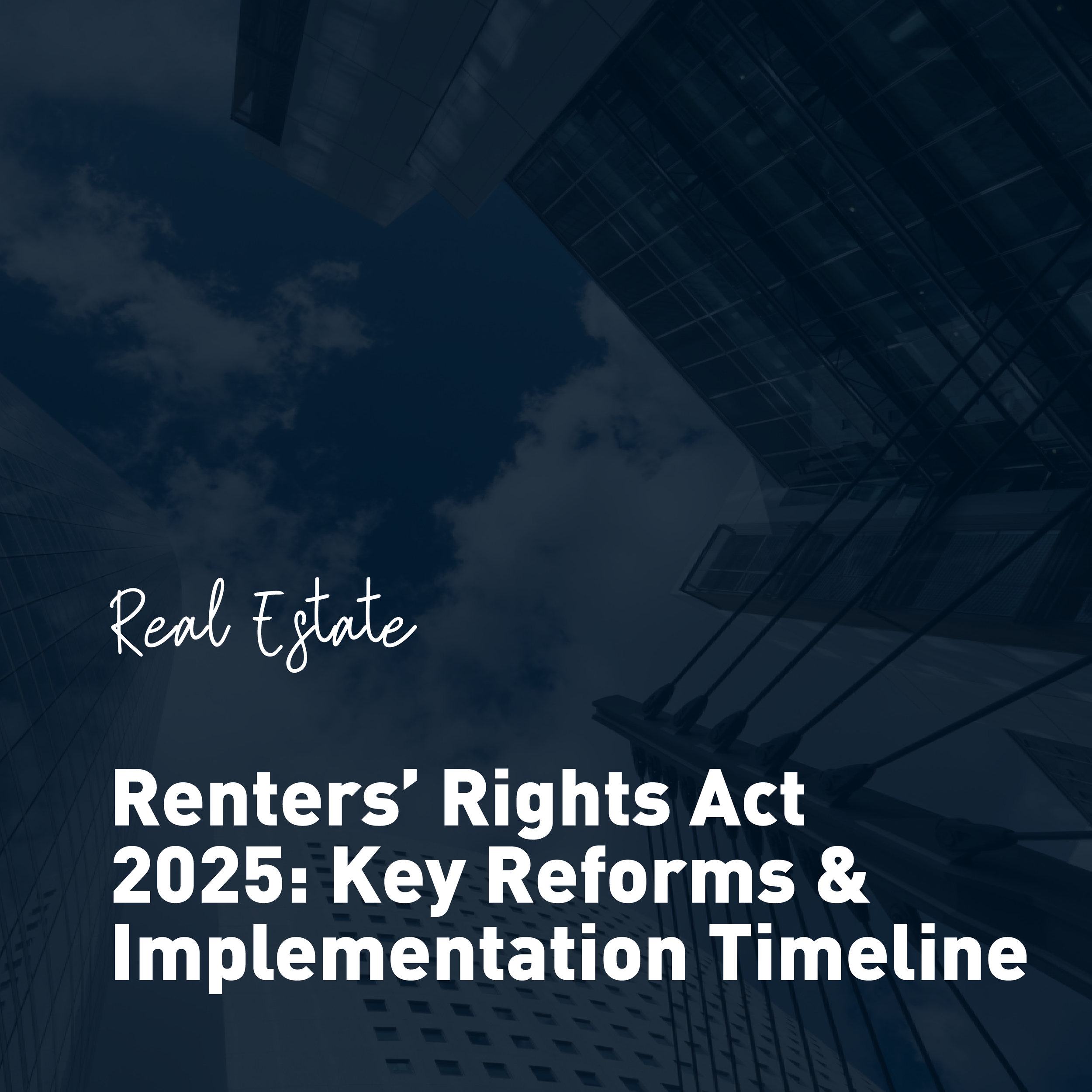
Our Sectors

Latest News & Insights
Sign up for our upcoming Employment Law Seminar where Employment team members Nicholas Lakeland and Victoria Brockley discuss Coping with Employment Tribunal Claims – what to expect? Grievances – tactics and outcomes and Case Review - recent cases of interest.
In today’s marketplace, the way a company presents itself visually is under far more than just aesthetic scrutiny. Colours are increasingly interpreted as signals of corporate values, from sustainability to inclusion.
In the face of growing environmental and regulatory pressures, the UK Government is making significant strides in enhancing energy efficiency standards, particularly in the commercial real estate sector.
You see clauses that set caps limiting liability for poor performance everywhere. They are usually hidden away in the small print at the end of a contract. Here is a short quiz about a clause in a Master Supply Contract where IT services were called off on Statements of Work.
Laytons ETL’s Equity Capital Markets team advised AIM-quoted United Oil & Gas Plc (the Company), the oil and gas company with a high impact exploration asset in Jamaica and development asset in the UK, on their recent oversubscribed fundraising of £2.33 million for the proposed issue of a total of 1,552,532,979 of new ordinary shares (the Fundraising).
We are delighted to announce the appointment of Rebekah Parker as Managing Partner. She will be the first woman to hold the role at Laytons ETL, which this year celebrates 150th years of legal excellence.
A client recently raised an intriguing proposition based on a suggestion from his IFA; could he put his inheritance due from his mother’s estate into a Discretionary Trust, and then borrow it back?
Laytons ETL’s Equity Capital Markets team advised AIM-quoted Invinity Energy Systems Plc (IES), in relation to a conditional fundraising of £25 million (before expenses). IES entered into conditional subscription agreements with two new investors, Atri Energy Transition Private Limited (“Atri”) and Next Gen Mobility Limited (“Next Gen”).
The Courts of England and Wales remain an attractive choice for international litigants, with international parties representing a significant number of Claimants and Defendants in fraud cases in England and Wales. In this article, we explore the strategic advantages of Bankers Trust Orders.
The English Devolution and Community Empowerment Bill (“the Bill”) was submitted to Parliament on 10th July 2025. While the Bill is largely geared towards the devolution of powers from Westminster to local authorities, Schedule 31 of the Bill introduces a surprise ban on Upwards Only Rent Review (“UORR”) clauses in commercial leases in England and Wales.
From 6th April 2025, the UK abandoned the traditional concept of domicile for inheritance tax (IHT) purposes. Instead, it hinges on whether someone is a long-term UK resident. Under this new regime, an individual is deemed a long-term UK resident if they have been tax-resident in the UK for at least 10 of the preceding 20 tax years.
Sign up for our upcoming Employment Law Seminar where Employment team members Nicholas Lakeland and Victoria Brockley discuss The Employment Rights Bill/Act 2025, Part time & Fixed Time workers rights, Redundancy case law and Settlement Agreement.
In this article we discuss some of the key considerations Sponsors/bidders should take into account when considering a public-to-private transaction involving a UK-listed target against the backdrop of the current market and the ongoing macroeconomic environment in the face of U.S. Trump tariffs, trade wars and global conflicts and resulting supply chain issues.
Laytons ETL’s Equity Capital Markets team advised AIM-quoted Tungsten West Plc (the Company), the mining company focused on restarting production at the Hemerdon tungsten and tin mine in Devon U.K., on a fundraising of £4.3 million by way of adding an additional tranche H to its existing 2023 Convertible Loan Notes (CLN).
The shift of Strategy (formerly MicroStrategy) from being an enterprise software firm selling business intelligence tools to a corporate owner of bitcoin when they first purchased in August 2020 around USD$250 million of Bitcoin (BTC) to hold in its treasury, has caught on, it seems, on this side of the pond.
The Law Commission has issued an interim statementsetting out the provisional conclusions drawn from its first consultation paper on the future of security of tenure for business tenancies under Part II of the Landlord and Tenant Act 1954 (the 1954 Act).
Executors play a vital role in fulfilling a testator’s wishes and distributing their estate properly. Occasionally, issues arise when decisions about whether to act, renounce or have power reserved are made too soon. In this article, we explore the legal and practical effects of such decisions.
Laytons ETL’s Equity Capital Markets team advised Beaumont Cornish in its role as Nominated Adviser (Nomad) of AIM-quoted Riverfort Global Opportunities Plc (which has now been renamed Tooru Plc) (Tooru), in relation to a proposed acquisition and proposed placing.
Last week the UK Government published its long-anticipated White Paper, “Restoring Control over the Immigration System”. The Government’s key message in the lead-up to the paper’s publication was that the immigration system would be “radically reformed” to be “controlled, managed and fair”.
In the recent Upper Tier Tax Tribunal (UT) decision in Elborne v HMRC [2025] UKUT 00059 (TCC), the UT set aside the First Tier Tax Tribunal’s (FTT) decision in favour of HMRC to declare the ‘home loan’ tax avoidance scheme a success.










































